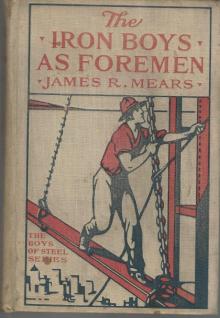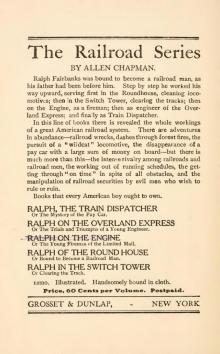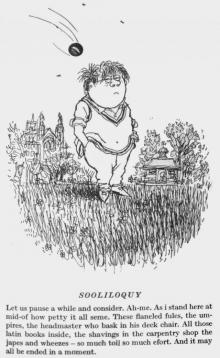- Home
- Mrs. Molesworth
Blanche: A Story for Girls Page 6
Blanche: A Story for Girls Read online
Page 6
suppose."
And as soon as the obliging waiter had removed the breakfast things, MrsDerwent got out her writing materials, and set to work at a letter toMessrs Otterson and Bewley.
It was just a little difficult to her to write anything of a formal orbusiness-like nature in English. For as a young girl, nothing of thekind had been required of her, and since her marriage, though theDerwent family had been faithful to their own language among themselves,all outside matters were of course transacted in French. So Blanche andStasy were both called upon for their advice and opinion.
"How do you begin in English, when it is to a firm?" said Blanche. "InFrench it is so easy--`Messieurs'--but you can't say `Sirs,' can you?"
Mrs Derwent hesitated.
"I really don't know," she said frankly. "You sometimes wrote for yourgrandfather to bankers and such people, didn't you, Blanche? Can't youremember?"
Blanche considered.
"I don't recollect ever writing anything but `Sir' or `Dear sir,'" shesaid.
The three looked at each other in perplexity.
Suddenly a bright idea struck Mrs Derwent.
"I will write it in the third person," she said. "Mrs Derwent will beobliged, etc."
"That is a capital plan," said Blanche, and in a few minutes the letterwas satisfactorily completed.
It read rather quaintly, notwithstanding the trouble that had been takenwith its composition. The clerk in Messrs Otterson and Bewley's smallback office, whose department it was to open the letters addressed tothe firm, glanced through it a second time and then tossed it over toyoung Mr Otterson, who was supposed to be learning the business as ajunior in his father's employ.
"Foreigners, I should say," observed the clerk.
"Better show it to the governor before you send an order to view,"replied the other.
Mr Otterson, senior, looked dubious.
"Send particulars and an order," he said, "but mention that nonegotiations can be entered upon without references. We must becareful: this school is bringing all sorts of impecunious people aboutthe place."
So the reply which found its way to the private hotel in Jermyn Street,though, strictly speaking, civil, was not exactly inviting in its tone.
Mrs Derwent read it, then passed it on to her elder daughter. She feltdisappointed and rather chilled. They had been looking for the lettervery eagerly, for time hung somewhat heavy on their hands. They had noone to go to see, and very little shopping to do, owing partly to theirstill deep mourning. And the noise and bustle of the London streets,even at this dead season, was confusing and tiring; worst of all, therewas an incipient fog about still, as is not unusual in November.
"What do you think of it?" said Mrs Derwent, when Blanche had read theletter.
"It is dear, surely," said Blanche. "Let me see--one hundred and twentypounds; that is, three thousand francs. I thought small country-housesin England were less than that."
"So did I," her mother replied. "Still, we can afford that. Of course,if it had not been for my own money turning out so much less than wasexpected, we could have bought a little place, which would have been farnicer."
"I don't know that," said Blanche. "At least, it would not have beenwise to buy a place till we had tried it. And you have still a littlemoney, mamma, besides what we get from France. We shall have quiteenough."
Mrs Derwent's "own money," inherited from her father, had been unwiselyinvested by him; when it came to be realised after his death, it proveda much less important addition to Henry Derwent's income than had beenanticipated.
"Oh yes, we shall have _enough_," she replied, fingering the agents'letter as she spoke. "I don't understand," she went on again, "I don'tunderstand what they mean by the `recent rise in house rents owing tothe improvements in the town.' What improvements can there be?"
"Gas, perhaps, or electric light," said Blanche.
"_Gas_, my dear child!" repeated her mother. "Of course, there hasalways been gas there. It was not such a barbarous, out-of-the-wayplace as all that. Still, I scarcely think they can have risen to theheights of electric lighting yet. But we must go down and see forourselves. These agents ask for references, too: I wonder if that isusual in England? No doubt, however, it will be all right when I tellthem who I was."
"But if they did want formal references," said Blanche hesitatingly,"have we any one whose name we could give?"
"My bankers," Mrs Derwent replied promptly. "Monsieur Bergeret opened aprivate account for me with the firm's bankers here. I do wish I couldidentify the house," she added. "I am sure I never heard the namebefore--`Pinnerton Lodge'--and yet I have a vague remembrance of`Pinnerton.'"
"Just as you had of `Enneslie,' mamma," said Stasy. "Well, when are weto go to see it? To-morrow?"
"Yes; I see no use in delaying it," said Mrs Derwent.
So the next morning saw the mother and daughters again at VictoriaStation, Master Herty having been given over with many charges to thecare of the faithful Aline.
They were in more than good time; their train was not due for sometwenty minutes or so, and as they walked up and down the platform, thepicture of their first arrival there returned to Blanche's mind.
"Did you see that girl the other night, mamma?" she said. "The girl whohailed a porter for us. No, I don't think you did. The fog was sothick. I never saw such a charming face: the very incarnation of youthand happiness she seemed to me;" and she related the little incident toher companions.
Stasy sighed.
"I daresay she has got a lovely home somewhere, and relations who make agreat pet of her, and--and--oh, just everything in the world she wants,"she said.
Blanche looked at her sister doubtfully.
"Perhaps she has, but perhaps not," she replied. "It isn't always thoselucky people who are the happiest. But, Stasy, I do wish you wouldn'tbe so lugubrious: the air of London doesn't seem to suit you."
"I am not lugubri--what a dreadful word!--I am quite cheerful to-day.It is so interesting to be going to choose our new house. Mamma, shallwe have to buy a lot of furniture, or will there be enough of what wehad at home?"
"My dear Stasy--of course not. What a baby you are! Don't you rememberthat we sold by far the greater part to the Baron de Var? Dear me, yes;we shall have to buy all sorts of things."
Stasy's eyes sparkled.
"That will be delightful," she said. "I _am_ so glad. So if we settleto take the house at once, we shall be ever so busy choosing things.That's just what I like."
Her good spirits lasted, and, indeed, increased, to the end of thejourney. It was exhilarating to get out of the murky London air, eventhough in the country it was decidedly cold, and even slightly misty.As they approached her old home, Mrs Derwent grew pale with excitement.
"To think," she said to her daughters, "of all that has happened since Ileft it, a thoughtless girl, that bright October morning, when my fatherdrove me in to the station, and gave me in charge to the friend who wasto take me to Paris, where young Madame de Caillemont, as we calledher--the daughter-in-law of our old friend--met me, to escort me toBordeaux. To think that I never came back again till now--with you two,my darlings, fatherless already in your turn, as I was so soon to bethen."
"But not _motherless_?" said Stasy, nestling in closer, "as you were,you poor, dear, little thing. And you hadn't even a brother or sister!Except for marrying papa, you would have been very lonely. But I wishyou'd look out of the window now, mamma, and see if you remember theplaces. We must be getting very near Blissmore."
The train was an express one, which in itself had surprised Mrs Derwenta little: express trains used not to stop at Blissmore. They whizzedpast some roadside stations, of which, with some difficulty the girlsmade out the names, in one or two instances familiar to their mother.Then signs of a more important stopping-place began to appear; rows ofsmall, "run-up" cottages, such as one often sees on the outskirts of atown that is beginning to "grow;" here and there a tall chimney,suggestive
of a brewery or steam-laundry, were to be seen, on which MrsDerwent gazed with bewildered eyes.
"This surely cannot be Blissmore," she exclaimed, as the trainslackened. "I have not recognised the neighbourhood at all. It must besome larger town that I had forgotten, or else the railway comes along adifferent route now."
But Blissmore it was. Another moment or two left no room for doubt;and, feeling indeed like a stranger in a strange land, Mrs Derwentstepped on to the platform of what was now a fairly important railwaystation.
"A fly,

 The Iron Boys as Foremen; or, Heading the Diamond Drill Shift
The Iron Boys as Foremen; or, Heading the Diamond Drill Shift An Enchanted Garden: Fairy Stories
An Enchanted Garden: Fairy Stories Grandmother Dear: A Book for Boys and Girls
Grandmother Dear: A Book for Boys and Girls Ralph, the Train Dispatcher; Or, The Mystery of the Pay Car
Ralph, the Train Dispatcher; Or, The Mystery of the Pay Car The Children of the Castle
The Children of the Castle The Magic Nuts
The Magic Nuts Uncanny Tales
Uncanny Tales Silverthorns
Silverthorns The Third Miss St Quentin
The Third Miss St Quentin Christmas-Tree Land
Christmas-Tree Land Philippa
Philippa Jasper
Jasper The Little Old Portrait
The Little Old Portrait Mary: A Nursery Story for Very Little Children
Mary: A Nursery Story for Very Little Children Us, An Old Fashioned Story
Us, An Old Fashioned Story The Constant Prince
The Constant Prince Blanche: A Story for Girls
Blanche: A Story for Girls The Cuckoo Clock
The Cuckoo Clock The Carved Lions
The Carved Lions Tell Me a Story
Tell Me a Story That Girl in Black; and, Bronzie
That Girl in Black; and, Bronzie Sweet Content
Sweet Content Boys and I: A Child's Story for Children
Boys and I: A Child's Story for Children The Man with the Pan-Pipes, and Other Stories
The Man with the Pan-Pipes, and Other Stories Bert Wilson's Fadeaway Ball
Bert Wilson's Fadeaway Ball Nurse Heatherdale's Story
Nurse Heatherdale's Story Adventures of Herr Baby
Adventures of Herr Baby Shaggycoat: The Biography of a Beaver
Shaggycoat: The Biography of a Beaver Adventures of Prince Lazybones, and Other Stories
Adventures of Prince Lazybones, and Other Stories Adventures of Piang the Moro Jungle Boy
Adventures of Piang the Moro Jungle Boy